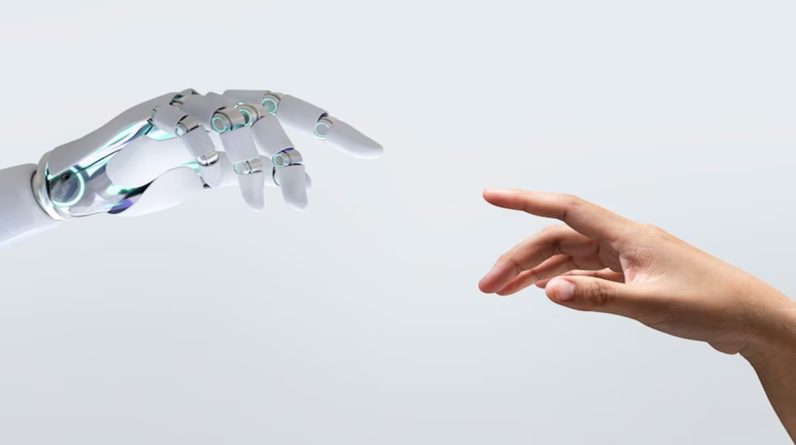The artificial intelligence industry suffered a massive boost in the past years, as innovation helped it become more approachable by the regular user. Especially with the rise of ChatGPT and the OpenAI company, interest in AI contributed to its emergence in other sectors. Among many of the benefits of leveraging AI in the real world, managing repetitive tasks and full-on automation are what make it one of the greatest technologies of modern times.
Industries like healthcare, retail, and social media can improve their efficiency extensively with AI. However, crypto and blockchain are still more connected with AI since they’re all new tools on the market. Many activities performed in this sector could benefit from AI systems, such as Bitcoin mining, one of the most energy-intensive and time-consuming activities. Mining is essential for the cryptocurrency to be safe and valuable. Without it, no one would still learn how to buy Bitcoin with credit card and use it as a store of value because the blocks mined wouldn’t be maintained anymore.
So, let’s see how AI could improve Bitcoin mining.
Potential benefits of AI in mining
Artificial Intelligence is entirely customizable, so we can make it learn and adapt to new processes and systems. This would be a revolutionary tool for mining, which changes consistently based on the required hardware and strategies. Hence, AI in mining could enhance investors’ decision-making through pattern recognition and predictive analysis that could better manage mining.
At the same time, AI has the capacity to optimize hardware use to great potential by checking blockchain requirements based on electricity prices and other costs. This way, miners could choose the most economical option for updating their hardware while maintaining the same productivity levels.
Finally, leveraging AI ensures a more energy-efficient approach, which is essential regarding climate change and sustainability. Considering that Bitcoin mining is one of the most wasteful crypto-related activities, the use of AI for computing tasks that are more productive would help minimize the effects of mining on the environment.
AI computers and quantum mechanics for Bitcoin mining
Along with quantum computing, AI can make Bitcoin mining smarter and more sustainable by taking advantage of a multitude of algorithms, data insights, and strategic planning. While AI can work with analyzing data and providing reports, quantum mechanisms can better solve the complex mathematical problems required for mining to operate, which could be the best solution for saving time.
Besides traditional block computation, the quantum mechanism allows miners to prepare calculations for the following blocks while operating the current ones, which would put less pressure on the ASIC chips, lowering the energy required for the block.
Moreover, these two technologies together can make mining more profitable, which is one of the most disputed issues in the crypto sector, considering the upcoming halving that will lower the rewards for miners by half. Considering that miners experience halvings every four years, it will be more complex and inefficient to mine in the future if things go this way.
Other alternatives to Bitcoin mining as consensus mechanisms
Considering that Bitcoin mining is based on the PoW consensus mechanism, other alternatives may be more fit for saving costs and energy as this technology has become outdated. For instance, the PoS consensus used by Ethereum put the base of adding new blocks to the blockchain and validating in relation to owning cryptocurrency. Hence, users are chosen to be validators based on the number of coins held and will stake them as collateral.
There’s also PoA, which works based on validators’ reputation and authority instead of computational power, providing high scalability levels. The PoA model might be more fit for private networks and enterprises due to enhancing trust among communities.
Another unique mining alternative is Proof of Elapsed Time (PoET), in which users are delegated a certain period of inactivity to achieve the right to mine the next block, so it can reduce the overall energy consumption.
The future of crypto mining stands in renewable energy
Crypto mining has been found to be significantly damaging to the environment due to massive amounts of CO2 released into the air. Bitcoin mining is contributing to climate change, and this issue will be solved in the future when electricity used for mining is switched to renewable and zero-carbon energy.
According to the Bitcoin Clean Energy Initiative, miners might be able to outsource the activity with excess energy that cannot be stored properly. Mining can also be leveraged to adapt nuclear generators to a changing grid, and this idea has already been implemented by the TeraWulf company.
Crypto mining can also play an essential part in rising employment rates because facilities that operate like data centres need to be maintained by staff. In addition to the teams required during the construction and operation phases, workers are needed at the facilitation site, which might create numerous green energy jobs, considering that the base of mining in the future could be hydro and other renewable energy sources.
Other crypto-mining challenges to consider
Besides the energy issue, crypto mining faces various issues in the present. For instance, the equipment costs are increasing by the year. In the case of Bitcoin, for example, when the halving happens, miners must ideally buy new hardware to face the increasing requirements and lower rewards.
At the same time, the technological complexity of mining, especially in PoW-based cryptocurrencies, is considerably difficult to tackle by beginners, for example, which hinders the industry’s expansion. On top of that, the security vulnerabilities miners expose themselves to, such as malware and cyberattacks, are making it less attractive for new talent.
Conclusion
Bitcoin mining was the first to introduce s to this concept, and without it, no other cryptocurrencies would be able to evolve and improve. However, Bitcoin mining has become considerably damaging to the environment, and new alternatives are sought to slow down climate change. That’s why artificial intelligence could be the answer to this issue because it could help automatize many processes and find the best solution for energy-intensive tasks. At the same time, miners can focus on their mining strategies.
(Devdiscourse’s journalists were not involved in the production of this article. The facts and opinions appearing in the article do not reflect the views of Devdiscourse and Devdiscourse does not claim any responsibility for the same.)







